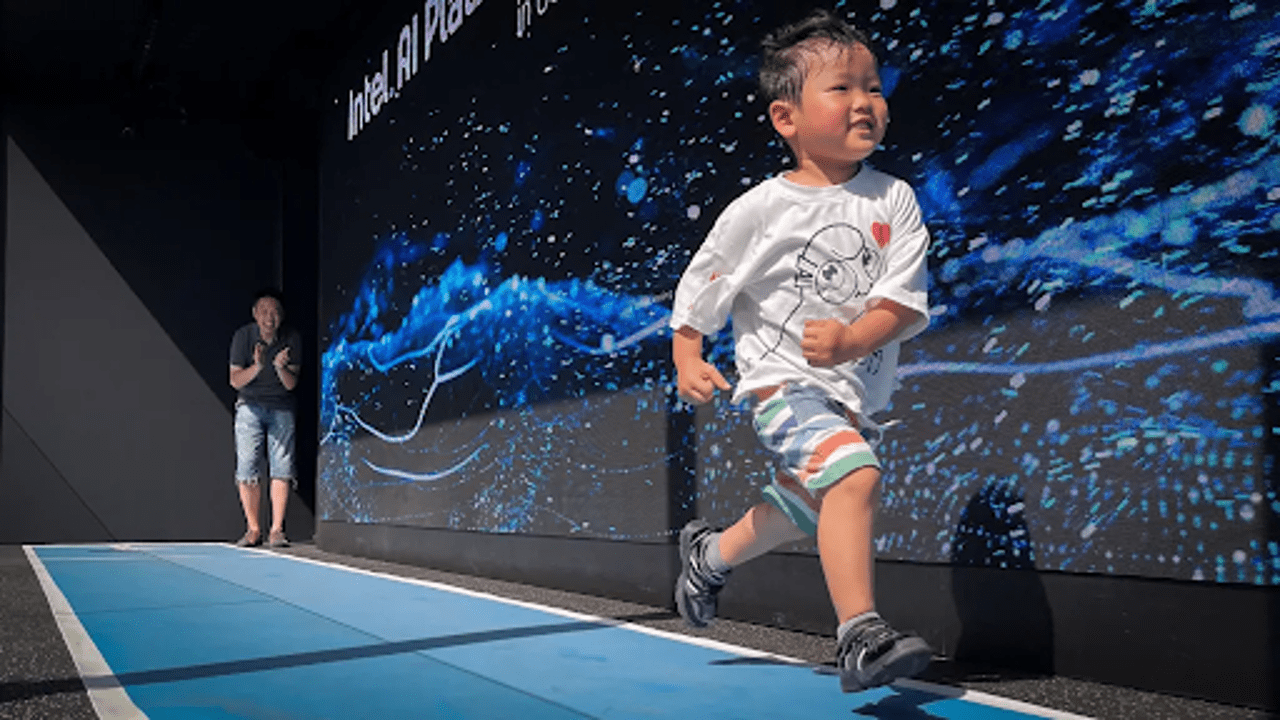
Tomo’s sprinting abilities are tested as his father, Tad, looks on. BBC
At the Paris Olympics, a new AI-powered system is catching attention as it aims to discover future sports stars. This innovative technology, developed to identify promising athletes, is being tested on visitors at the Olympic Stadium. The goal is to use this system to uncover the potential gold medallists of tomorrow, with hopes of extending its reach to remote areas worldwide.
Young siblings Tacto and Tomo from Yokohama, Japan, are among those trying out this cutting-edge technology. The AI system assesses their athletic abilities through various tests, including running, jumping, and measuring grip strength. The data collected is analyzed to evaluate factors like power, endurance, reaction time, and agility, and is compared with benchmarks from professional and Olympic athletes.
Tacto and his mom, Nami, measure how quickly they can react. BBC
Sarah Vickers, who heads Intel’s Olympic and Paralympic Program, explains that the system uses computer vision and historical data to help participants understand which sports they might excel in. After completing the tests, each participant receives a recommendation on the sport best suited to their physical strengths. Intel assures that all personal data is deleted after the assessment.
In Senegal, assessors used tablets to record videos of children, helping AI evaluate their speed and agility. BBC
The technology behind these tests is quite advanced. While the system at the Olympics is sophisticated, a more portable version is available that only requires a basic camera and minimal computing power. This mobile version has already been used in Senegal, where it assessed over 1,000 children from five villages. The results identified 48 children with significant athletic potential, including one with exceptional promise, who have been invited to join sports programs.
Francesca from Barcelona is being evaluated by the system in Paris. BBC
Professor John Brewer, a talent identification expert, acknowledges the benefits of early talent spotting but notes limitations. He points out that while the system is useful for initial assessments, it may not fully capture attributes required for technical sports or endurance events, like marathons. However, Brewer sees value in the system for preliminary evaluations and for reaching athletes in underserved areas.
At the Olympic Stadium, Tacto's results suggest he has potential as a sprinter, though he currently prefers football and tennis. The system even amused two former university athletes, Hank and Brock, who tested their skills for fun. Despite their competitive backgrounds, their results were surprising: Hank was recommended for rugby, while Brock was suggested for basketball, a sport he has never played.















